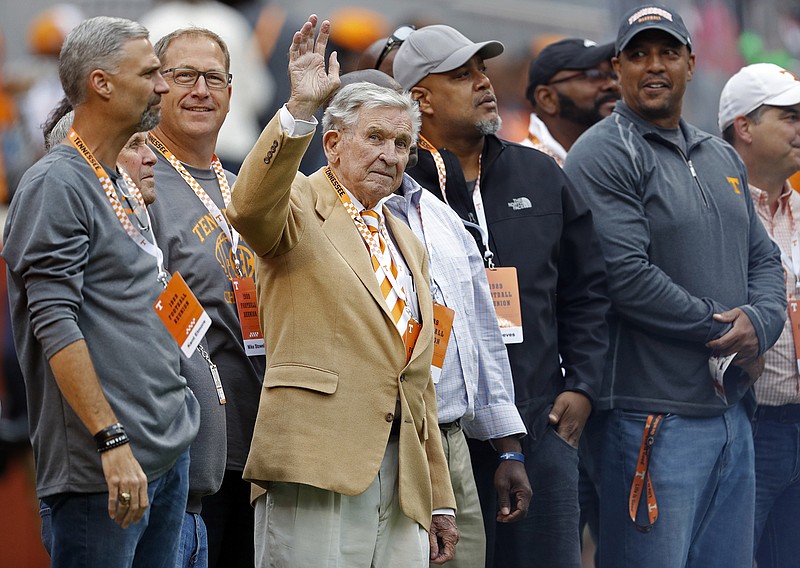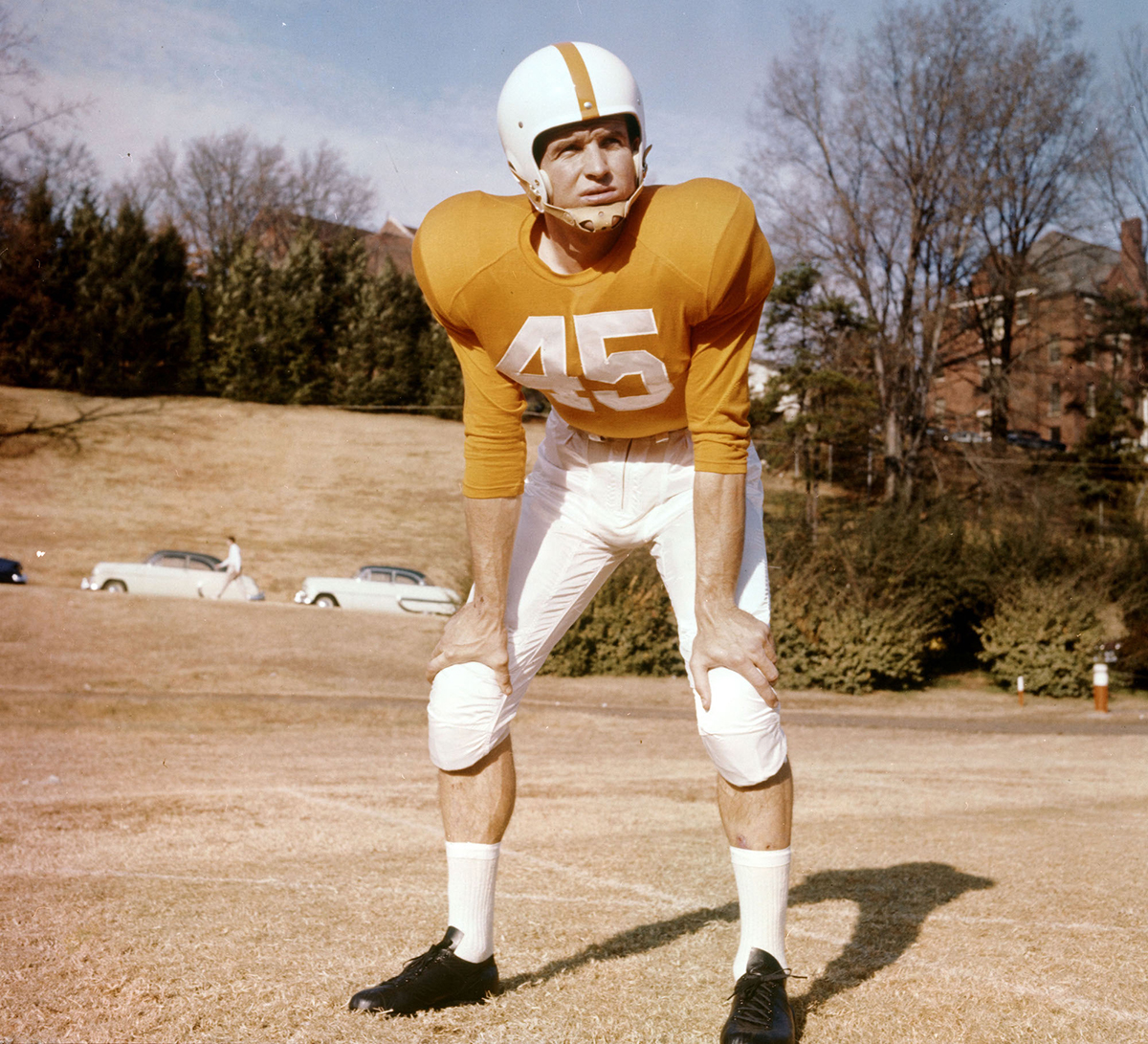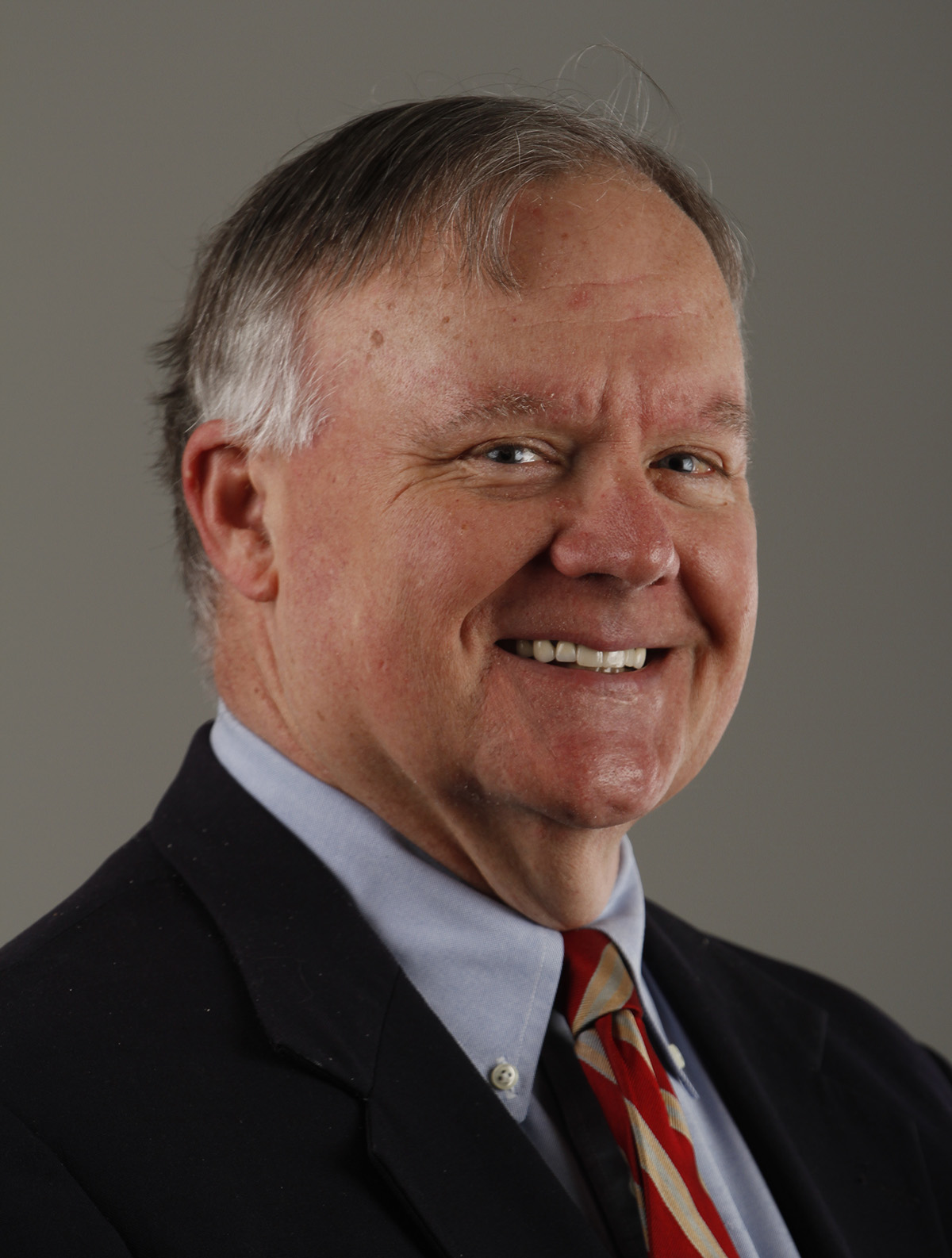Former Pittsburgh, Texas A&M and Mississippi State football coach Jackie Sherrill called into "The Paul Finebaum Show" on Wednesday afternoon to reminisce about Johnny Majors, who was Sherrill's boss at Iowa State and Pittsburgh.
He said he'd just spoken to Majors for an hour on Sunday night. Suddenly overcome with emotion about the 85-year-old University of Tennessee legend's passing early Wednesday, Sherrill began to sob. Within the Volunteer State, where Majors was renowned as both a player and a coach for the Vols, Sherrill's emotions have surely been repeated thousands of times.
"As a teenager, I rode the White Star Lines bus from Maryville to Knoxville and sold all my UT programs before the game started so I could watch every Johnny Majors run and pass and punt and quick kick," said U.S. Senator and former UT president Lamar Alexander in a prepared statement.
"When he played the game, he WAS Tennessee football, and the Majors family became the First Family of Tennessee football."
In the long, largely proud history of Tennessee football, there never has been a fairy tale quite like that of John Terrill Majors - right up to the time it ended in a nightmare of a firing for all concerned when he was canned as UT's coach late in the 1992 season.
The magic started at Huntland High School, where his father Shirley was the coach before leaving to run the football program at the University of the South (Sewanee) from 1957 to 1977.
An undersized tailback who probably never weighed more than 165 pounds as a player, Johnny had three athletic traits - speed, quickness and otherworldly instincts - that eventually led him to finish second to Notre Dame star Paul Hornung in voting for the 1956 Heisman Trophy.
While most still believe it may have been the greatest heist in Heisman history - Hornung remains the only player to win the award while playing on a team with a losing record - Majors often said you could make an argument that neither one of them should have won.
"Jim Brown probably should have won it," observed Majors of the Syracuse back who became an NFL great and was inducted into the Pro Football Hall of Fame. "He was probably the best player in the country."
But long before that autumn of '56, Majors was a college freshman in the fall of '53. Calling home one night after a practice, he told his dad: "You know those moves I used in high school? They're still making them miss up here."
A year later, in his first official college game against Mississippi State in Memphis, Majors used one of those moves to cap an 81-yard touchdown run. He also intercepted a pass and would have had a second score if officials hadn't ruled he'd fumbled before he crossed the goal line, though the apparent turnover was recovered by a teammate for a Big Orange score.
"Replays, and I've watched them a few times, showed I scored before I fumbled," he mused a few years ago. "But I had a pretty good start as a sophomore."
Yet as marvelous a college player as he was - and Majors was inducted into the College Football Hall of Fame in 1987 - he was considered equally adept at coaching until Doug Dickey, UT's athletic director at the time, fired him late in the 1992 season in what many will always consider a bloodless coup by the longtime assistant who replaced him, Phillip Fulmer, who is now the AD in Knoxville.
Majors first lifted a wretched Iowa State program during the late 1960s, won a national championship at Pitt in 1976, then came marching home to Tennessee in 1977 to begin a 16-year run that featured three Southeastern Conference titles, a stunning 35-34 comeback win at Notre Dame after trailing 31-7 and the 35-7 obliteration of Miami in the Sugar Bowl played on New Year's Day in 1986.
Said Ron Zook, the former Vols assistant who later became a head coach at Florida and Illinois: "The one thing that I really felt like with Coach Majors was that he was great during the game. He used to always say that if you're yelling on Saturday, you didn't do enough yelling during the week. He never came unglued."
Still, there was always so much more to him than football. He routinely took university courses, especially in history, during his winters at Pitt and UT. He was passionate about the arts. And he just may have been the best-dressed coach of all time. Whether on the sideline, at a speaking engagement or just hanging out with friends, he always looked as if he'd just stepped out of a Brooks Brothers catalog. He could even make UT orange look refined.
Merely consider where the family is encouraging donations to be sent in Majors' honor: The Knoxville Symphony Orchestra.
"I didn't know I was a legend," Majors said in 2002, when the SEC honored him as one. "Whatever my biography may say is good, I know why it happened ... I had great support from home, unconditional love from my parents, my siblings, my wife (and Chattanooga native) Mary Lynn and the children."
It has been a tough week for SEC coaching legends. Former Auburn coach Pat Dye, a close friend of Majors', died Monday at 80. But the great thing about legends is that a lot of folks will rightly remember them forever.
Which leads us to Charles Davis, who played for Majors at UT and has risen to great success in broadcasting.
"He's every cliché that you want to talk about when you're talking about the giants of our game," Davis said. "You can't write the SEC history without his name being a prominent part of it - as a player and a coach. You'll never be able to say the word 'Tennessee' without the name 'Majors' coming up very quickly in your mind. He's Tennessee, and Tennessee is him."
And no unceremonious end to his UT coaching career should ever change that.
Contact Mark Wiedmer at mwiedmer@timesfreepress.com. Follow him on Twitter @TFPWeeds.


